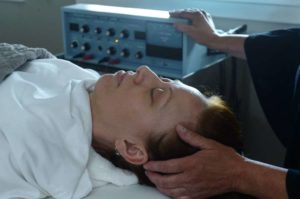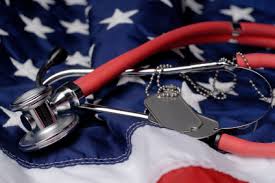When we think about people with out-of-control consumer debt, we picture wild shopping sprees and luxurious lifestyles. But the main reason a large number of Americans wind up in financial trouble has nothing to do with self-indulgence. Rather, it’s a matter of medical debt. And having health insurance in no way guarantees that you won’t fall victim to medical debt.
RIP Medical Debt began erasing some $65 million worth of medical debt for veterans, their family members, National Guardsmen and Reservists in 2016.
Just like in Willy Wonka, recipients receive notification, via a letter in a golden envelope, that part or all of their medical debt has been satisfied. And the action is automatic, so anyone who receives one of the “golden tickets” and mistakes the envelope for junk mail and tosses it, still benefits.
Since beginning its mission in 2014, this 501(c)(3) charity has been responsible for wiping out a $435 million mountain of medical debt for civilians with significant bills who are living at less than twice the poverty level, are insolvent or have more than 5 percent of their gross income going to health care debt.
According to RIP Medical Debt’s website:
- 1 in 5 people living in the U.S. are grappling with medical debt;
- Nearly 50% of all credit card debt in the US is from medical debt;
- Medical debt contributes to 60% of all bankruptcies in America; and
- More than 40% of Americans wouldn’t be able to cover an emergency expense of $400.
The non-profit is the brainchild of collections industry executives Craig Antico and Jerry Ashton, have more than 70 years of experience in the credit and collection industry between them.
Antico and Ashton knew that once medical debt was sent to collection agencies from medical providers such as hospitals, doctors and ambulance companies, they could purchase the debt for a cents on the dollar, or even less. This would yield a tremendous result, as a $50,000 tax-deductible donation could potentially wipe out $5 million of medical debt.
Ashton, a Navy veteran, was surprised at the number of active-duty military and veterans who had substantial medical debt.
“Like many Americans, I believed that America takes care of the medical needs of the men and women who have served our country,” he said.
Instead, he found that veterans may face mounting medical bills while waiting to get into the Department of Veterans Affairs system or they aren’t eligible for care at the VA.
“You can imagine that these veterans are getting hounded for financial debt, and they already have anxiety or depression or post-traumatic stress disorder or a traumatic brain injury. This is a big relief,” he said.
Many of RIP’s donations come from individual donors and corporations that raise money specifically for the charity. Because the forgiven debt is considered a gift, there is not any tax liability for the recipient, and the debt is removed from the three major credit reporting agencies.
Please tell me what you think about this incredible service. Let’s start a conversation.
Veteran and Military Business Owners Association, VAMBOA,












